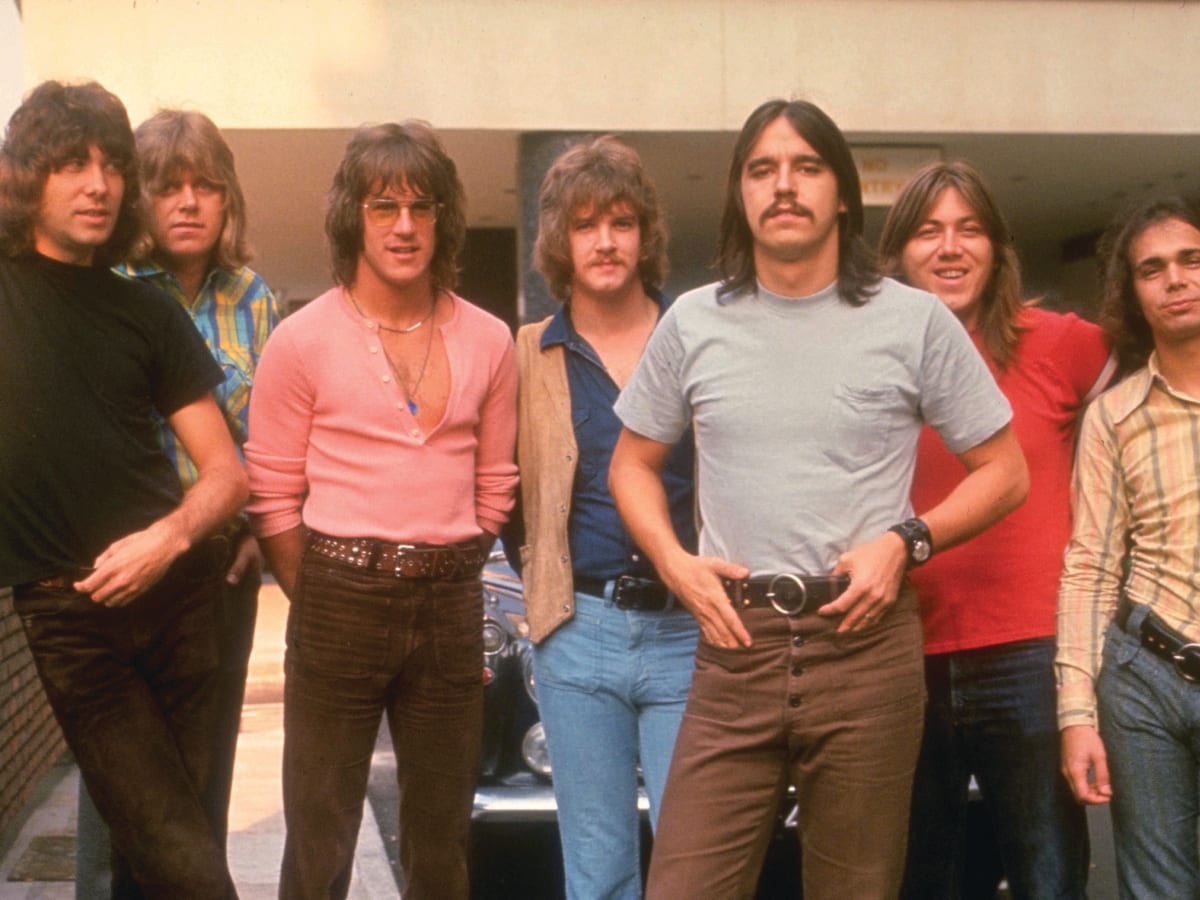Peter Cetera, the iconic voice behind the legendary rock band Chicago, has forever changed the face of American music.
As a founding member, Cetera’s unique vocals and songwriting skills helped shape the band’s signature sound.
From his humble beginnings as a backing vocalist and bassist to becoming the lead singer, Cetera’s contributions to Chicago’s success are immeasurable.
His journey with the band, from its formation through its most successful years, showcases his incredible talent and influence on rock music.
Even after embarking on a solo career, Cetera’s impact resonates with fans worldwide.
This blog post will explore Peter Cetera’s life and musical legacy, shedding light on how his remarkable abilities helped create some of the most beloved songs in rock history.
Formation and Early Years of Chicago
The story of Chicago begins in 1967, a time of musical innovation and experimentation.
Initially called “The Big Thing,” the band was formed by ambitious musicians from Chicago, Illinois. They later renamed themselves “Chicago Transit Authority” before simply settling on “Chicago.”
Among these founding members was Peter Cetera, who joined the ensemble in late 1967 as a bassist and backing vocalist. His entry into the band began a new chapter in their evolving sound.
In the early years, Chicago distinguished itself with a robust brass section and a blend of rock, jazz, and classical influences, setting them apart from the conventional rock bands of the era.
Peter Cetera’s role during this formative period was primarily as a bassist, but his vocal talents did not remain in the background for long.
As the band experimented with its musical direction, Cetera’s voice emerged as a crucial sound element, particularly in their live performances and studio recordings.
His ability to harmonize and later lead with his strong, clear vocals contributed significantly to the band’s distinctive identity.
Chicago Band’s Rise to Prominence

As Chicago transitioned into the 1970s, the band’s sound matured, becoming more refined and commercially successful.
Peter Cetera’s rise to the forefront as a lead vocalist was instrumental in this transformation.
His unique voice began to define some of Chicago’s most memorable hits, marking the band’s ascent to prominence in the American rock scene.
The early 1970s witnessed the release of several of Chicago’s critically acclaimed albums, such as “Chicago VI” and “Chicago VII.”
These albums featured various hit singles where Cetera’s vocal talent shone brilliantly.
Songs like “Just You ‘n’ Me” and “Wishing You Were Here” not only topped the charts but also showcased Cetera’s ability to convey deep emotion and connect with audiences, establishing his status as a key figure in the band.
Peter Cetera’s Leadership and Defining Hits

The late 1970s and early 1980s marked a significant era for Chicago, with Peter Cetera stepping into an even more prominent role as the band faced tragedy and transition.
The sudden death of Terry Kath in 1978 left the band in mourning and in need of a new direction.
Cetera’s leadership and distinctive vocal style were vital during this period, helping to guide the band through its next phase.
Peter Cetera’s voice became the defining element of Chicago’s sound with the release of their 1976 hit single, “If You Leave Me Now.”
This song achieved number one on the charts and won Chicago its first Grammy Award, highlighting Cetera’s significance in their commercial success.
His ability to deliver powerful ballads became a hallmark of Chicago’s music, leading to a shift towards more soft rock-oriented tracks that appealed to a broader audience.
Throughout the late 1970s and 1980s, Cetera became the band’s primary lead vocalist and most recognizable face.
Hits like “Hard to Say I’m Sorry,” “You’re the Inspiration,” and “Hard Habit to Break” are synonymous with his era of leadership.
These songs solidified Chicago’s place in the pantheon of great American rock bands and showcased Cetera’s evolving artistry and increasing emotional depth in his music.
As the 1980s progressed, however, Peter Cetera began to explore opportunities outside of Chicago, eventually leaving the band in 1985.
His decision was influenced by his desire to pursue a solo career and explore new artistic challenges.
This transition marked the end of an era for Chicago but the beginning of a successful solo journey for Cetera, which we will examine in the following section.
Cetera’s Solo Career and Departure
Cetera’s solo career quickly took off with the release of his hit single “Glory of Love” in 1986.
This song served as the theme for the movie The Karate Kid Part II and topped the Billboard Hot 100 charts, establishing Cetera as a successful solo artist.
His subsequent hits, including “The Next Time I Fall” (a duet with Amy Grant) and “One Good Woman,” showcased his ability to craft emotionally resonant and commercially successful songs that connected with a wide audience.
His albums as a solo artist, such as Solitude/Solitaire (1986) and One More Story (1988), were marked by Cetera’s distinctive vocal style and a softer rock/pop sound that differed from Chicago’s brass-infused rock.
These works allowed him to explore themes of love and personal reflection that became the hallmarks of his solo work.
Conclusion
From his beginnings as a founding member of Chicago to his successful solo career, Peter Cetera’s musical journey is a story of artistic growth and lasting influence.
As Chicago’s lead vocalist, Cetera’s distinctive voice and emotional range were crucial in developing the band’s signature sound and propelling them to global success.
His vocals characterized some of the most memorable hits of the ’70s and ’80s and connected with a generation of fans, creating a permanent mark on rock and pop music history.
Cetera’s choice to pursue a solo career opened a new chapter, highlighting his artistic adaptability and talent for forming deep connections with listeners.
His solo achievements showcased his ability to thrive in the music industry, cementing his position as a noteworthy musical icon of his era.





















